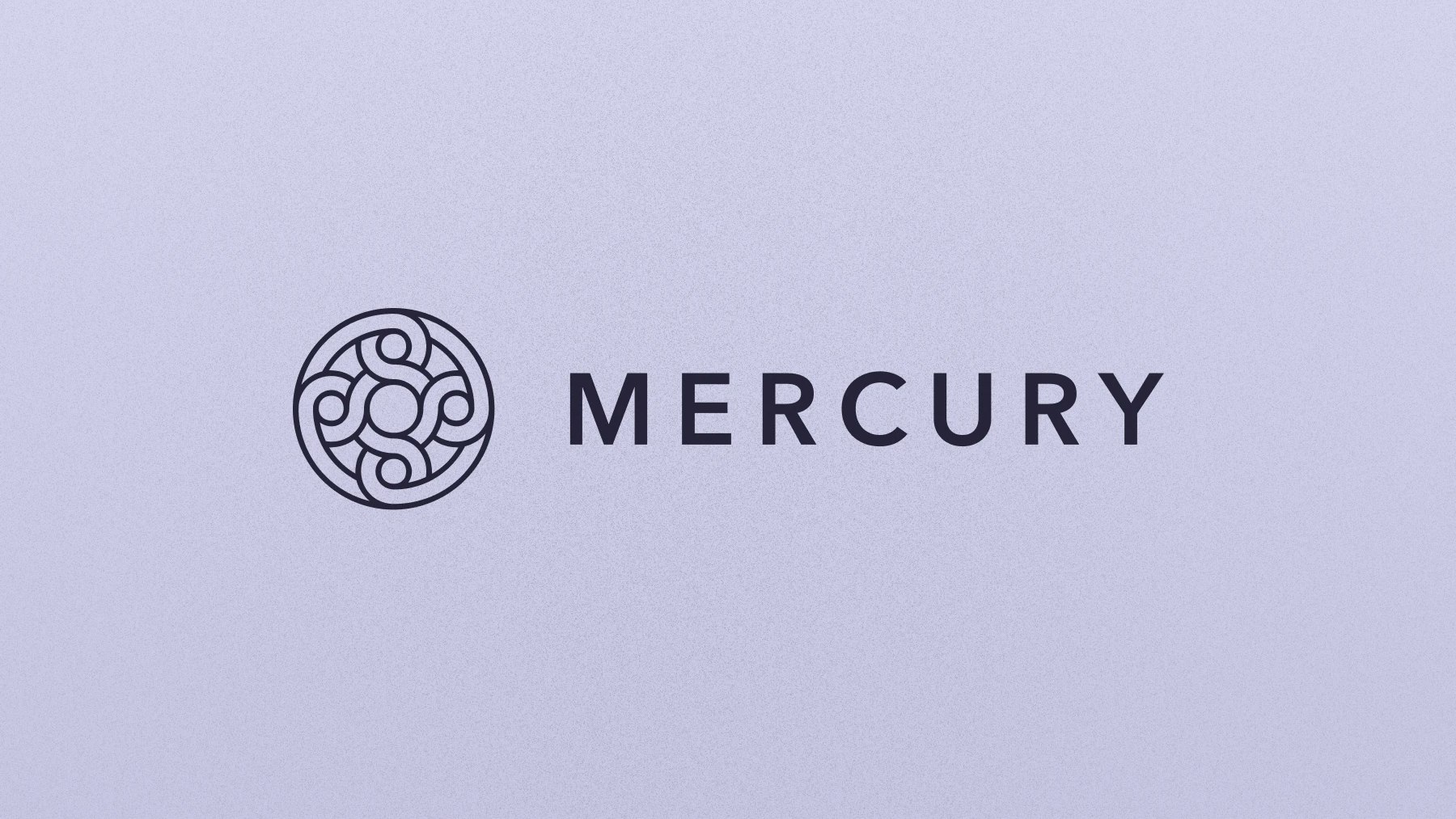What you need to know about the evolving situation around SVB

This has been a stressful time for many across the startup ecosystem and as you consider alternatives to SVB, you understandably have a number of questions. We want to provide up-to-date guidance based on what we know and how the situation continues to evolve. Ensuring that you have the information you need to make sound financial choices is our top priority, and we have increased our customer support hours to meet this demand. Please don’t hesitate to reach out with any specific questions.
Updates about SVB
On March 12, 6:15pm ET, Treasury, the Federal Reserve, and FDIC released a joint statement to announce that all SVB deposits would be fully protected. According to the FDIC, all SVB depositors gained full access to their deposits on Monday morning, March 13, 2023.
Once you have access to your external account, you can conduct a transfer (we recommend a wire, but you can also use a check or ACH) to Mercury through your dashboard. We’d like to share some guidance on the best way to get those funds to Mercury.
How do I deposit money from SVB to Mercury?
The fastest and most reliable way to fund your Mercury account is to initiate a wire. Your funds should be available within 1 business day. You can access the information you’ll need to set up a wire transfer here.
While you may also send funds via ACH transfer or check, please note that ACH deposits take up to 3 business days to become available and checks from SVB may take up to 7 business days.
What caused processing delays in ACH deposits initiated between March 9–March 14, 2023?
Because SVB had not been dealing with ACH properly and canceling ACH transfers far outside normal time windows, we took the precautionary measure of holding ACH funds under review before depositing them in the days directly following the SVB failure. Deposits that we were not able to clear were subsequently returned to SVB originating accounts.
Beginning Monday, March 20, extended ACH holds have been removed and new ACH transfers have returned to processing normally (within 3 business days).
Introducing Mercury Vault
Today, we’re introducing Mercury Vault, which offers startups of any size and scale a simple way to manage bank risk and protect funds.
In addition to securing more FDIC insurance for our customers — up to $5M (or 20x the per bank limit) as of today — Mercury Vault makes it simple to move cash into money market funds composed of short-term, U.S. government-backed securities.
Here’s how Mercury Vault helps protect your funds:
1. Protection beyond FDIC insurance
With Mercury Vault, customers with cash over their FDIC insurance limit can protect those funds by moving them to Mercury Treasury's Vanguard money market funds — which are 99.5% invested in US government-backed securities and held 100% in the customer's name.
Investments made in Mercury Treasury ensure that your money is protected beyond any FDIC insurance amount — at any deposit size — and are secured by the U.S. government.
2. Up to $5M in FDIC insurance
After the events of the past few days, it is abundantly clear that the standard of $250K FDIC insurance is not enough for startups, who need peace of mind that cash for short-term operations and payroll is secured.
Through our partner banks, Mercury customers get access to a sweep network of trusted, FDIC-regulated banks.
This sweep network provides up to $5M in FDIC insurance by automatically spreading your deposits across up to 20 different banks, without requiring you to open and manage separate bank accounts.
We know that FDIC insurance is critical, and we’re actively working to expand this coverage even further in the coming weeks.
3. Real-time insight into how your cash is protected and insured
Right now, startups need a clear understanding of how their money is protected and what simple actions they can take to reduce their risk. Mercury Vault will continuously monitor cash across your accounts and recommend actions you can take to keep every dollar as secure as possible.
These actions may include opting into the sweep network offered by our partner banks or shifting cash to a secure and diversified Mercury Treasury account. We’re also working to provide additional recommendations in the near future.
What’s more, Mercury keeps you in control by organizing all of these accounts within your Mercury dashboard — offering a simplified, bird’s-eye view of all funds.
What is Mercury Treasury and how is it different from a bank account? How is money in a Mercury Treasury account protected?
Mercury Treasury allows you to further diversify and earn yield on your idle cash by moving funds into short-term mutual funds.
Our Treasury product is offered through our partner, Apex Clearing Corp — a FINRA-regulated broker-dealer/custodian (similar to Morgan Stanley). The mutual funds that you can invest in through Mercury/Apex are managed by Morgan Stanley and Vanguard.
Any accounts opened through Mercury/Apex are opened in the customer's name, and any funds/securities are held by Apex solely for the customer. Apex is prohibited from using customer funds or securities for its own purposes or even from commingling those funds/securities with its own. In the unlikely event that Mercury or its diversified network of partner banks suffers liquidity risk, your funds would be fully safeguarded at Apex. In the even more unlikely event that Apex was to fail, your funds would simply be transferred to another broker-dealer. This is fundamentally different from how banks use customer funds so funds in Treasury don’t carry any of the same liquidity risks — regardless of what happens at your bank, funds/securities held at Apex will remain safe and accessible.
For customers with over $25M of cash to invest, we’ve partnered with Morgan Stanley to offer strategic cash investment services. Eligible Mercury customers can access Morgan Stanley’s experienced, short-duration, fixed-income portfolio management team to create a customized cash management strategy to meet their needs.
Is it safe to put money in a Treasury account right now?
Mercury Treasury offers mutual funds optimized for the safety of your money. The first is the Vanguard Treasury Money Market Fund (VUSXX), a low-risk fund that exclusively invests in U.S.-backed securities. The second is the Morgan Stanley Ultra-Short Income Portfolio (MULSX), a higher-yield fund that primarily invests in commercial paper, CDs, and repurchase agreements. Both funds can be liquidated back to your checking account in just a few days (the time it takes for the securities to be sold, converted to cash, and wired back to your account). Both funds only invest in very short-term maturity securities, which don’t carry the same interest rate risk that was seen with SVB and their long-dated maturity securities. We see many customers putting excess cash over what is covered by FDIC insurance into Treasury accounts.
How is Mercury doing right now?
Given the events of the last several weeks, we understand that you may have some questions about how exactly Mercury works. Our top priority is providing startups with accounts that offer maximal protection of their funds and diversification across financial institutions to reduce the risk of any single point of failure. Because Mercury is not a bank and does not hold customer funds directly, we are in a unique position to provide protection and peace of mind.
We’ve outlined the following questions to provide more clarity about our position.
Do Mercury’s partner banks have any exposure to SVB? Did they make any of the same long-term investments that caused losses for SVB?
We work with two main partner banks: Choice Financial Group and Evolve Bank & Trust; Members FDIC. Both banks operate sweep networks, allowing them to spread deposits across other large, trusted banks. SVB is not part of these networks. Because FDIC insurance is up to $250K per financial institution per customer, spreading deposits across multiple banks unlocks additional insurance. This is how our customers receive $5M in FDIC insurance — 20x the per bank limit. A sweep network also reduces the risk of any single point of failure. In other words, if one bank fails, deposits held at the other banks are still safe.
No, our partner banks did not work with SVB in any capacity. Our partner banks are in sound financial condition. They have well-diversified deposits outside of tech, which reduces volatility and helps ensure stability for all of their customers. They have not seen any significant deposit outflows at this time. As for investments, they have remained disciplined by keeping their bond portfolio in only short-term, highly liquid, and government-backed securities. Short-term securities don't bear the same market volatility that long-term securities do in a rising rate environment. As a result, there is no large mark-to-market risk like what we’ve seen with SVB. Additionally, our partner banks do not conduct high-risk lending activity, have no direct crypto exposure, and have sound capital ratios.
What is Mercury’s financial position?
Mercury is well-capitalized and profitable. We are a technology company, not a bank, so we do not hold any customer deposits on our own balance sheet. All customer funds are securely held with regulated, FDIC-insured partner banks and deposits are spread across their sweep networks (themselves comprised of regulated, FDIC-insured banks), which reduces the risk of any single point of failure.
What does it mean that “Mercury is a financial technology company, not a bank”?
Although many of our customers think of Mercury as their bank, we are not technically a bank and we do not hold customer funds directly. Instead, we work with two primary partner banks and a number of regulated, well-respected financial institutions to offer banking services to our customers.
This allows us to optimize our customers’ experience without the constraints that any single bank would have. We've invested our time in adding additional layers of compliance and security (everything from sweep networks that increase FDIC insurance to encryption protocols on account, data, and card information), and modernizing the banking experience (including things like transparent payments, automated money transfer rules, and integrations with accounting software like QuickBooks). Customers can access all of that via one convenient account. Here is a more in-depth view of how Mercury works.
What capacity does Mercury (and its partner banks) have for new deposits?
Through our partner banks and their sweep networks, we have ample capacity for additional deposits. We are currently onboarding hundreds of new customers each day and will continue to expand our partner bank network and software offerings to serve our growing customer base.
How can I move deposits between Mercury’s two partner banks?
Eligible customers can put in a request to our support team to easily wire funds between Evolve and Choice. Typically, these transfers settle within one business day. Both of our partner banks have implemented sweep networks and together offer up to $5M in FDIC insurance (meaning customer funds are only partially held at the partner bank and the rest are moved into accounts at other banks), so most customers that switch do so for the slightly different feature offerings (e.g., at this time, only Choice offers wire drawdowns which can be useful for payroll).



